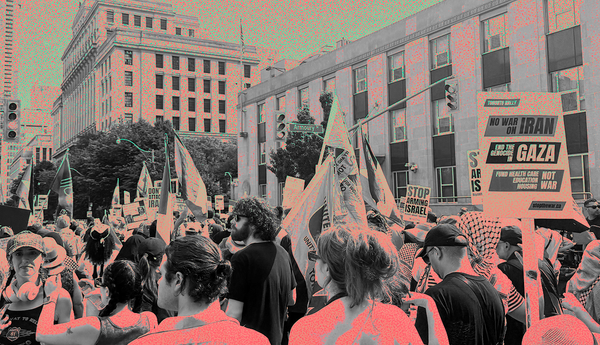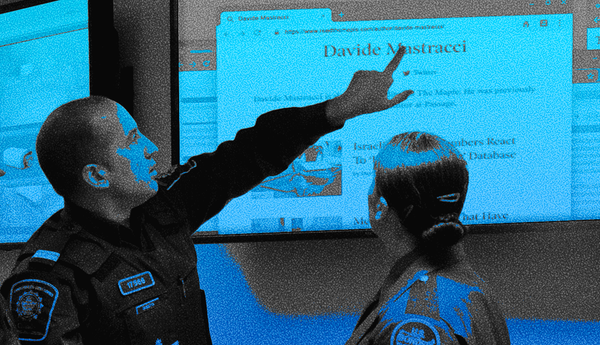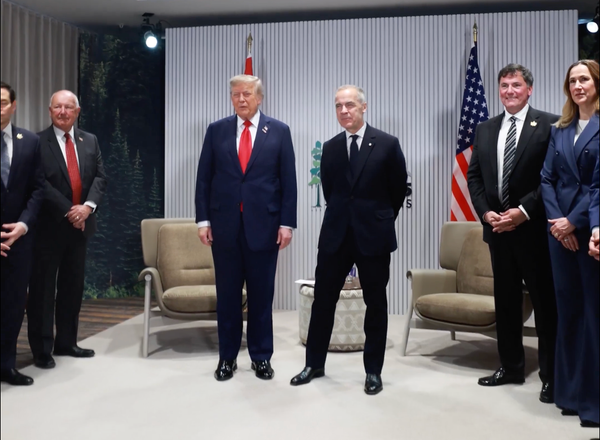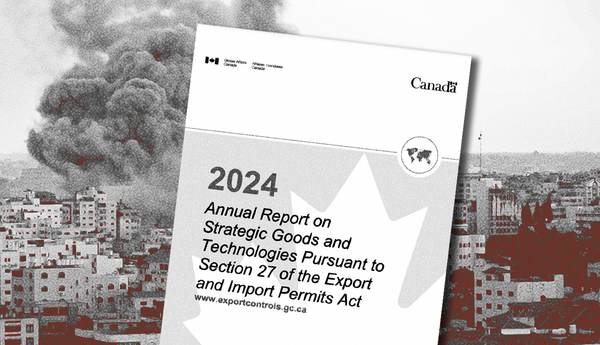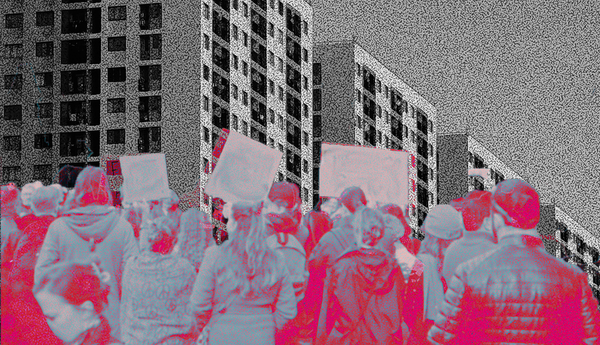As right-wing fear mongering over drug policy grips British Columbia, the governing NDP has “folded like a cheap tent” and is playing into the Opposition’s politicking over drug users’ lives, according to a drug user advocate.
The B.C. United party (formerly the B.C. Liberal Party) has dogged the government this year over its harm reduction-oriented drug policy. This is particularly true for the opposition party’s mental health and addictions critic, Elenore Sturko, a former Surrey RCMP spokesperson.
“She is more visible on this than the leader is, and it’s kind of this issue that I think they feel like has legs, has traction for them,” said Garth Mullins, a member of the Vancouver Area Network of Drug Users and one of the co-founders of the Drug User Liberation Front (DULF).
“So they’re playing politics, and then the B.C. NDP is playing it right back.”
Mullins said the pressure from the right has come in the form of a “law and order moral panic.”
Over the past year, as an average of more than 200 people die each month from unregulated drugs, the movement against initiatives like B.C.’s partial decriminalization pilot project and safe supply has been growing.
The reaction has been propelled largely by openly right-wing media outlets and Global News, and embraced by politicians from Sturko to federal Conservative Party Leader Pierre Poilievre.
But as the struggling B.C. United attempts to mount pressure on the B.C. NDP, the governing party appears unwilling to spend its sizable political capital on life-saving initiatives — ones that were already critiqued as half-measures that failed to address systemic issues and power imbalances.
Instead, the B.C. NDP has ceded ground to right-wing critics. When government funding for DULF entered the news cycle, the government quickly snuffed out that funding.
As claims of widespread drug use near playgrounds arose, the NDP introduced legislation around public drug use that critics say effectively killed its decriminalization project. As claims about safe supply diversion increased — despite experts saying there was no evidence it was contributing to deaths or producing new diagnoses of substance use disorders — the province has remained steadfast in its opposition to expanding safe supply programs beyond a medical model.
That includes denying a call by the chief coroner and a panel of 21 experts — including public health officials, researchers and a chief of police — to implement compassion clubs a week after the Vancouver Police Department raided DULF and arrested two operators.
Critics say relying on prescribed safe supply — as opposed to compassion clubs, which operate based on a co-operative model also known as “buyers’ clubs” — leaves drug users’ lives in the hands of doctors. When doctors de-prescribe, as appears to have happened this year, critics say that means declining access to a life-saving service.
Premier David Eby has also occasionally floated the idea of involuntary addiction treatment, a policy that experts, including Eby’s former employer, and research say would result in few positive outcomes and contribute to increased deaths and other harmful effects.
At the same time, the government’s language around safe supply in monthly statements on unregulated drug deaths has taken a back seat to make way for a heavier focus on recovery programs, even as several of these have come under fire for their high costs and questionable efficacy, as well as safety issues.
The monthly statements haven’t mentioned safe supply since January 2023 after being mentioned at least once in 13 of the previous 20 monthly releases, while references to treatment and recovery have featured more heavily in the past year-and-a-half.
Unspent Political Capital
All of this comes while the B.C. NDP is far ahead in the polls — 338 Canada’s current projections place the party as receiving 46 per cent of the vote and winning 77 of 87 seats. Meanwhile, B.C. United is facing trouble in the form of a surging B.C. Conservative Party, with each right-wing party polling at 20 and 21 per cent respectively.
“It shows incredible cowardice [on the NDP’s part] or, at heart, it’s a party of drug warriors,” Mullins said. “And I think it’s probably both.”
In an emailed statement from the public safety and mental health ministries, the B.C. government said toxic drugs are “killing people and hurting communities. It can’t go on like this.” The statement cited past actions around safe supply and other harm reduction measures before saying the ministries had heard from local governments about drug use in community spaces — “and we take those concerns seriously.”
University of British Columbia political science lecturer Stewart Prest said hedging on drug policy is an “inevitable” part of politics.
“In some cases, being more assertive in addressing a problem may actually bring a lot more voters because you can demonstrate concrete success,” Prest said. “So there is a real risk in overly timid, incremental policy, particularly when you’re dealing with a real crisis.”
“But there’s also this countervailing fear that if you are too aggressive in your approach you will inevitably start to open up political space for your opposition.”
This is true of first-past-the-post politics, where parties seek to form big-tent coalitions, and of proportional representation politics, where multiple parties come together to form coalitions, Prest said. He noted that the latter tends to end in more open conversations in the negotiations about where to invest political capital.
In the case of today’s B.C. NDP, the party appears to be spending its political capital primarily on housing, an issue on which the party has made a series of major legislative announcements in recent weeks.
“Any government can only choose so many big battles, only so many signature policies to try to tackle, and I think it’s something of a tragedy, but the drug policy is not one of them. [...] They’ve made that calculation,” said Prest.
“They’re pulling resources out of this area that is a health-care crisis, and it is ruining lives, and they are effectively signalling that they’re going to do what they can, but they’re not going to make it the dominant issue for the government.”
Mullins put it more bluntly: “They think that supporting the demands of drug users or caring about drug users is not a vote-winner.” He thinks it’s a mistake, however, saying the NDP won’t gain support by being a slightly less tough-on-crime party.
Still, Mullins expects that no party seeking that big tent of support is going to be on the side of drug users. The recent shift away from harm reduction-type policies, Mullins said, is a good reminder of that.
“Whoever is going to be empowered is going to wind up being our enemy,” he explained. “So we’ve got to choose the one that’s going to attack us a little less. But the big focus is on building a movement that can arm-twist and exert community power on whoever’s in government.”
Drug users’ rights, Mullins added, won’t be advanced “by the right combination of seats or votes.”
“It never has. It gets advanced by us fighting in the streets and, where necessary, using civil disobedience to get us there,” he said. “That means breaking unjust laws. If it’s illegal to do a needle exchange, then we have to break the law and do it. If it’s illegal to have a safe injection site, then we’ve had to do that too.”
Dustin Godfrey is a freelance journalist and writer based out of the Vancouver, B.C. area. Their writing interests includes issues around justice, including housing, drug policy and policing.


